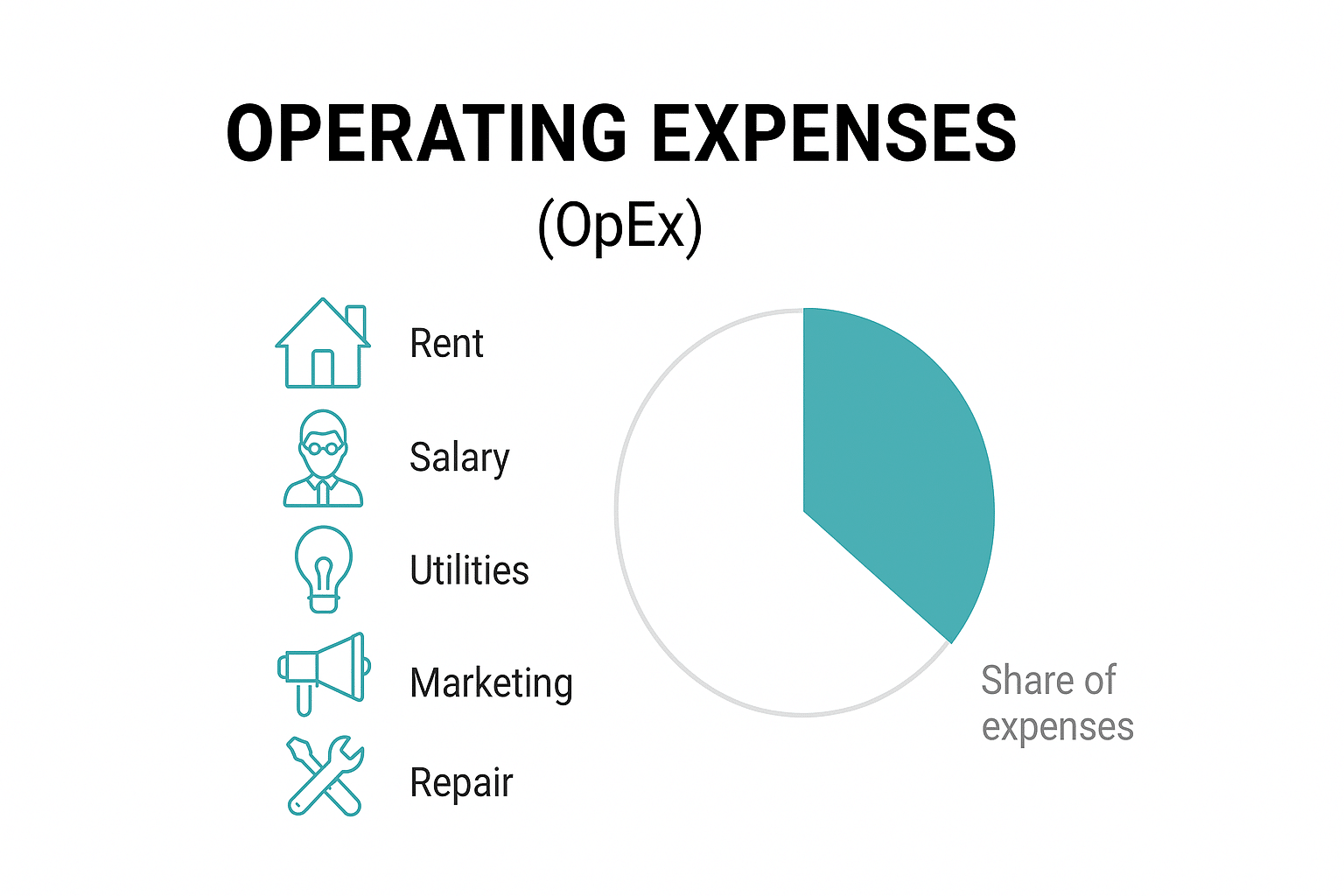Operating expenses, often abbreviated as OpEx, are the regular costs a business pays to keep its day-to-day operations running. These are necessary expenses that support the core functions of a company but are not directly tied to making products or delivering services. Managing operating expenses is critical for profitability and efficiency.
Common Categories of Operating Expenses
- Rent and leases: Payments for office space, retail stores, or warehouses.
- Salaries and wages: Compensation for employees, including benefits and payroll taxes.
- Utilities: Ongoing costs for electricity, water, gas, internet, and phone services.
- Marketing and advertising: Campaigns, promotions, digital ads, and branding activities.
- Office supplies and maintenance: Stationery, cleaning services, repairs, and minor upkeep.
- Professional services: Legal, accounting, and consulting fees.
- Insurance: Business, liability, and property coverage.
- Depreciation and amortization: Allocation of asset costs over time when those assets support operations.
Operating Expenses vs. Other Costs
It is important to distinguish operating expenses from other types of costs:
- Cost of Goods Sold (COGS): Direct production costs such as raw materials and direct labor. These are tied to creating goods or services rather than running operations.
- Capital Expenditures (CapEx): Large investments in long-term assets like machinery, equipment, or property.
- Non-operating expenses: Costs not related to normal operations, such as interest on loans or losses from asset sales.
Why Operating Expenses Matter
Operating expenses directly reduce operating profit. When revenues are steady but OpEx rises too high, profitability shrinks. Efficient companies monitor and control these costs to maintain healthy margins. Analysts and investors also study operating expense ratios to compare performance and efficiency across businesses.
Practical Example
A small café pays monthly rent, employee wages, utility bills, and marketing fees for local advertising. These recurring costs are all operating expenses. If the café finds a way to lower utility bills or negotiate better lease terms, it can reduce its OpEx and improve profit margins without needing to increase sales.
For further reading, see Operating Expenses on Investopedia.

